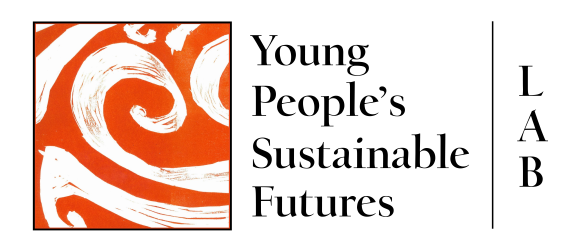This post provides a link to a video where Bella, a 15 year old young woman from Melbourne’s inner norther suburbs, talks about her life in the context of the COVID-19 pandemic, and her anxieties, fears, hopes and aspirations about the future – for the planet, her community, and herself.
Bella is a young woman who appears as passionate and articulate about the world around her. Both in the more immediate sense of the place where she lives and where she goes to school, and in the larger sense of the nation, the planet, and the challenges and crises – inequality, racism, climate change, work and the economy, education opportunities – that she sees as needing to be taken seriously by communities, businesses and governments.
And currently she is disappointed in the lack of attention that many leaders are giving to these challenges.
Early in this video she discusses many of the challenges that many young people experienced during the prolonged ‘stage 4’ lockdown that metropolitan Melbourne was placed under during the period of July-September 2020 in public health attempts to ‘flatten the curve’ of the 2nd wave of the COVID pandemic.
She remarks, for example, on “spending a lot of time on screen and on social media talking to people, Skyping, Zooming…becoming addicted to social media and having no social contact other than with family…of having no schedule, boredom, loneliness, no motivation, no teachers, no things to look forward to”.
The lockdown also had some upsides: “having more free time, more time to practice piano, but it’s hard during lockdown, no FOMO (fear of missing out), no anxiety, more freedom to do things, connect with family, getting creative, no worrying about getting ready for school or your appearance, watch more movies and TV”.
Bella also describes how, during the prolonged lockdown, she learned about the importance of community and “how much I rely on teachers, friends and school and how much I miss it”.
COVID-19 has impacted on her feelings about the future and her views of school and what it means to her, and the place that it occupies in her life: “having this structure in my life since being four years old and suddenly it’s all ripped away” had made her “more anxious, experiencing the first depression symptoms”.
Her sense is that by 2025 and that there will fewer jobs, and a greater divide between rich and poor. She expresses some anxiety and uncertainty about what her future holds in terms of having a job, housing options, economic instability, the threat of another global financial crisis.
In this sort of future, Bella imagines that social media will play a greater role in our lives, and that politics will be more divisive and polarised as people on the ‘left’ and the ‘right’ become more ostracised by, and in, social media bubbles. Her hope, however, is that racism will be an issue that is taken much more seriously, and that LGBTQI people and women will have greater representation in the media and in government.
Bella’s story highlights the concerns that many young people feel and experience about the multiple social issues that the pandemic has amplified. Her story also highlights the passion that many young people want to bring to these issues, if they are provided with opportunities to express this passion, or when they are able to develop their own with their friends, and in spaces that emerge in their communities. The challenge for stakeholders and communities is how to tap into that passion in meaningful and productive ways.
The COVID 19 Recovery Scenario’s for Young People in Melbourne’s Inner North Project
The COVID 19 Recovery Scenario’s for Young People in Melbourne’s Inner North is a collaboration between the UNESCO UNEVOC Centre at RMIT University (in the School of Education), the Inner Northern Local Learning Network (LLEN), the Inner North Youth Employment Taskforce (INYET) and the education, training, business, youth service and advocacy agencies, and local government agencies and authorities that are members of the LLEN and INYET.
Using a scenario planning methodology – see the links here to an outline of this approach – the project aims to develop a range of scenarios for young people in Melbourne’s inner north in 2025.
Figure 1 below provides a summary of the scenarios as they have been developed to this point – and in relation to the intersections and entanglements between the four main themes that have emerged from the research: Health and Well-being; Education and Training; the Economy and Livelihood; Community.

Figure 1: Three scenarios for 2025.
The project involved interviewing more than 50 young people in Melbourne’s inner northern suburbs – in the City of Yarra, City of Darebin and City of Moreland. These young people are stakeholders in their own futures. We aimed to develop innovative ways of providing a space for their voices, and for their voices to have impact in their communities and beyond. The project conducted these video interviews via the VideoAsk platform, and we are gradually curating and uploading these videos to our YouTube channel.
